Fire & Safety
Overview
Each year, more than 4,000 die and more than 25,000 are injured in fires, many of which could be prevented. Direct property loss due to fires is estimated annually at $8.6 billion of India.
To protect yourself, it is important to understand the basic characteristics of Fire.
Fire spreads quickly: There is no time to gather valuables or make a phone call. In just two minutes, a fire can become life-threatening. In five minutes, a residence can be engulfed in flames.
Heat and smoke from fire can be more dangerous than the flames. Inhaling the super-hot air can sear your lungs. Fire produces poisonous gases that make you disoriented and drowsy. Instead of being awakened by a fire, you may fall into a deeper sleep. Asphyxiation is the leading cause of fire deaths, exceeding burns by a three-to-one ratio.
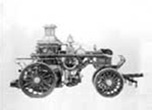
Past Fire Fighters
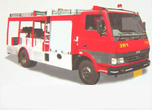
Present Fire Fighters
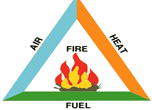
Fire Triangle
Understanding the "Fire Triangle" is the most basic concept in Fire Prevention and Control. In order for any fire to occur, three critical elements must be present:
- A fuel or combustible material
- An ignition or heat source
- Oxygen in sufficient quantities to support combustion.
When all three of these elements come together, combustion is the result. However, if only one of these elements is removed from contact with the other two, the threat of fire can be minimized. Thus, if oxygen, heat or the fuel supply can be removed, there is minimal risk of fire.
Oxygen, heat, and fuel are frequently referred to as the "fire triangle." Add in the fourth element, the chemical reaction, and you actually have a fire "tetrahedron." The important thing to remember is: take any of these four things away, and you will not have a fire or the fire will be extinguished.

Essentially, fire extinguishers put out fire by taking away one or more elements of the fire triangle/tetrahedron.
- Fire can truly be called the mother of all civilisation. It was the discovery of fire and the numerous uses to which it was put that has contributed directly or indirectly to the advancement of civilised society as we know it today
- The invention of tools & tool-making technology, cooking & nutrition, medicinal & health sciences, construction & transportation, defence & protection, all have their genesis in the energy & power that fire provides
- The earliest source of heat & light for the very origin of life on earth was the Sun, a giant ball of burning hydrogen, in other words, fire!
- One thing is certain. Fire has probably been used since much earlier times
- We can imagine the stages in its history: from the time hominids discovered charcoal which had caught light accidentally in a natural fire to their keeping the smoking coals; from carrying burning coals on long journeys to lighting fires whenever they were needed
- Ancient Greeks believed that it was Prometheus who brought fire to the mortals by stealing it from the Gods, thus earning him the wrath of Zeus
- For Zoroastrians, fire was a gift of truth, order, and righteousness
- For Hindus, fire is Agni, the God that purifies
- In that sense, the possession of fire is the possession of knowledge.
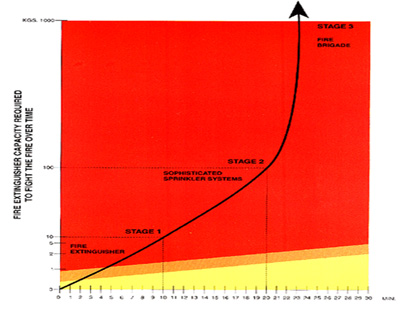
Three Stages of Fire
Ignition
When the fire outbreaks with heat , smoke and spark and the portable fire fighting fire extinguishers need to be used immediately in effective way
Critical
When the fire is growing , cannot be contained and spreading fast and the fixed installation of fire fighting like Sprinkler systems and fire hydrants can be used
Blaze
When the fire is uncontrollable and only professional help of Fire Brigade is needed
What to do During a Fire
If your clothes catch on fire, you should use SDR Principle
- Stop, Drop, and Roll - until the fire is extinguished. Running only makes the fire burn faster
- Crawl low under any smoke to your exit - heavy smoke and poisonous gases collect first along the ceiling
- Close doors behind you as you escape to delay the spread of the fire
- Stay out once you are safely out. Do not reenter. Call 101
Classification of Fuels:
Not all fuels are the same, and if you use the wrong type of fire extinguisher on the wrong type of fuel, you can, in fact, make matters worse. It is therefore very important to understand the four different classifications of fuel.
Escaping the Fire
- Review escape routes with your Staff. Practice escaping from each room.
- Make sure windows are not nailed or painted shut. Make sure security gratings on windows have a fire safety opening feature, so they can be easily opened from inside.
Classification of Fuels
Not all fuels are the same, and if you use the wrong type of Fire Extinguisher on the wrong type of fuel, you can, in fact, make matters worse. It is therefore very important to understand the four different classifications of fuel.
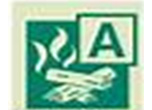
Class A Fuels Wood, paper, cloth, trash, plastics and solid combustible materials that are not metals.
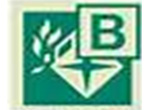
Class B Fuels Flammable liquids: Gasoline, oil, grease, acetone or any non-metal in a liquid state.
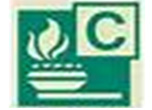
Class C Fuels Electrical: Energized electrical equipments, as long as it's "plugged in," it would be considered a class C fire.

Class D Fuels Metals: Potassium, sodium, aluminum and magnesium.
In Case of Fire
Safety of Life is of Prime Importance
Evacuate people form danger areas.
Keep Out Fire from Spreading
Close all doors and avoid entrance of fresh air to fuel fire and also not allow fire to have more combustible material.
Activate Fire Alarm
Raise an fire alarm manually, so that all occupants are alerted of the danger.
Telephone Important Numbers
Call important numbers, Authorities of the premises and Fire Brigade, Police and Ambulance.
Fight Fire
Fight fire with Fire Extinguishers and other systems, if possible only, if you are trained in the operations of the same.
Guidelines for Preventing Home Fire
One of the most popular places in a house is the kitchen. But besides being popular, it is also a potential risk for you.
What is a Kitchen Fire ?
A kitchen fire happens when an electrical appliance malfunctions or when grease or any other kind of flammable material falls on to the stove, while it is burning. Excess heating of oil especially the Indian favourite deep fried dishes. It may sound quite improbable, but thousands of cases show that unfortunately it’s quite common.
Safety Tip for Preventing House Fire
Although a kitchen could seem quite small, actually it is one of the principal source of fire.
What Precautions can be taken?
There are lots of things that can be done to protect you and your family from fire.
Wiring
Maintain adequately your electrical connections. Do not assume that they are ok. Check them and make sure that all the wirings are protected by insulation. If you don't know how to do it, pay the services of an expert, who can determine, whether you might have any losses in future. Additionally, do not overload your sockets with inadequate connections. There is a limit to the amount of things that you can connect to the electrical system of a home. That includes extensions. Consult your manufacturer's manual for this issue.
Flammable
Store flammables inside adequate containers, away from any heat source. But, if you can, avoid them entirely, although it may be quite impossible to do it, at least store the minimum amount possible inside your home. After all, you will find plenty of places to buy it, once it is consumed.
What are the Principal Fire Safety Tips
Although you may find lot of advices within the literature regarding fire safety in the home, you can concentrate on these tips mentioned below:
Smoke Alarms
Half of fire deaths within houses are in those homes that don’t have a smoke alarm. If you don’t have one, install them. They aren’t expensive. They are available for as little as Rs.1,500 utilised especially in your bedroom.
Smokers
Believe it or not, they are a problem. An unaccounted cigarette could end in some hidden corner of your living room and create a fire. Assure yourself that there are ash trays distributed around your house and that they are used by the people who smoke.
Clothing
Since minors are the ones principally affected by fire, look for sleepwear that is flame resistant. Each year hundreds of childrens are interned at hospitals because of inadequate garments for sleeping.
Alcohol
What do a couple of drinks have to do with fire? So, if you are making a reunion at your house, keep an eye on those that have surpassed their ability to maintain ownself.
Extinguisher
Even with all the preventions of the world, you could end facing a fire in your own house. Fire can spread itself especially in rooms with flammable material like carpets or wooden furnitures.
For those occasions, there is nothing like having a Fire Extinguisher of ISI Mark.
Fire Blanket
These are very handy to repeatedly douse fire in kitchen or on table. These don’t burn till 1200 degree celcius and are reusable and economical too to douse fire.
Avoid Clutter
Keep clutter to a minimum in and around your house. Storing old paper boxes, magazines and materials such as linen tidied away in the house. A messy house can be hazardous, if a fire breaks out, you need to find your way out of the house in dark.
Check Heating Appliances
Get a heating professional to check all your heating appliances, whether it is a stove, grill, dryer, or furnace. Chimneys, fireplaces should be cleaned, checked every year.





 1
1 2
2 3
3 4
4